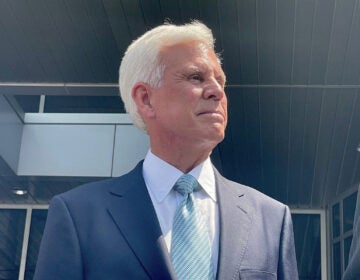Why attracting teachers with higher GPAs shouldn’t be N.J.’s top priority

This is part of a series from education blogger Laura Waters of NJ Left Behind.
The New Jersey Department of Education has proposed raising the required college GPA for new teachers to 3.0, or a “B” average. The higher cut-off — NJ currently requires a 2.5 –will “ensure [that] all novice teachers meet a minimum bar for knowledge and pedagogical skills before entering the classroom,” explained the DOE in a memo circulated last week.
Simple, right? Raise the bar for selection of teachers and, thus, raise teacher quality.
It should be so easy. The DOE’s proposal is not simple but simplistic, a facile sound-bite, (remember, it’s election silly-season) that does nothing to elevate the teaching profession.
Of course we all want to recruit and retain great teachers. But can we glean the potential of prospective educators from their college transcripts? Is a 3.0 at an undistinguished school that liberally distributes “A’s” equivalent to a 3.0 at, say, Rutgers or College of New Jersey? Are GPAs lenses for discerning teacher potential? And, given all the slings and arrows thrust by the Christie Administration towards public school staff — stiffening of tenure laws, data-driven evaluations, Common Core implementation — is the timing right for a gratuitous barb?
Certainly there is evidence to support the supposition that higher-achieving students make better teachers. In contrast to the oft-cited (if misplaced) example of Finland where teachers are recruited from the top third of their graduating classes, in America, according to a 2010 report from Kinsey and Co., “only 23 percent of new teachers come from the top third, and just 14 percent in high poverty schools, where the difficulty of attracting and retaining talented teachers is particularly acute.”
In addition, some of NJ’s neighboring states, including Pennsylvania and Delaware, require a 3.0 college GPA for teacher licensure, with exceptions made for unusually high SAT or GRE scores. (New York is currently pondering a similar proposal. In all, nine states set the cut-off at 3.0.) The American Federation of Teachers, NEA’s sister union, endorses the requirement. NJEA says it’s still reviewing the proposal but a spokesman says that the leadership is “strongly in favor of high standards for entry into the teaching profession.”
But we’re not tiny Finland with its ethnic and economic homogeneity. Our public education system is big and complex. However, two recent studies reveal promising ways to identify the most talented prospective teachers, and it’s not about GPA’s.
This past August the Council for the Accreditation of Educator Preparation approved new standards for teacher education programs. These standards include an average GPA of 3.0 and high ACT, SAT, and GRE scores, but that’s the least of it. Teacher colleges, says CAEP, should require that candidates for teaching degrees “demonstrate the ability to teach to college and career-ready standards” and “present multiple forms of evidence” to “indicate developing content knowledge, pedagogical content knowledge, pedagogical skills, and the integration of technology into all of these domains.”
The second study, released earlier this month from the National Center for Education Evaluation, looked at the effectiveness of teachers from the program Teach for America who taught middle school and high school math in high-poverty schools.
TFA is known for its rigorous screening of applicants, and clearly it’s doing something right: according to the report, “TFA teachers were more effective than the teachers with whom they were compared. On average, students assigned to TFA teachers scored 0.07 standard deviations higher on end-of-year math assessments than students assigned to comparison teachers, a statistically significant difference. This impact is equivalent to an additional 2.6 months of school for the average student nationwide.”
How does TFA select its teaching corps? The twenty-three year old organization uses a complex system to gauge the potential of aspiring teachers, which includes a lengthy written application, a telephone interview, an analysis and writing exercise, several in-person interviews, group interviews, and teaching demonstrations. In addition, TFA uses a computer-based algorithm with twenty variables to “help identify applicants with the greatest potential to be effective teachers.”
TFA, by the way, has a minimum required GPA of 2.5. NJ is already addressing teacher quality in meaningful ways through changes in tenure and evaluations but, certainly, there’s more to be done. We should pay teachers more and stop back-loading compensation. We should differentiate salaries and pay more for teachers who work in low-income schools and for those hard-to-fill positions like high school math and science and special education. We should maintain our traditional pipeline for career teachers while expanding alternative pathways. We should exercise more oversight of teaching colleges and support thoughtful selection processes. But increasing GPA requirements by half a point? Not worth the trouble.
______________________________________________________
Laura Waters is president of the Lawrence Township School Board in Mercer County. She also writes about New Jersey’s public education on her blog NJ Left Behind. Follow her on Twitter @NJLeftbehind.
WHYY is your source for fact-based, in-depth journalism and information. As a nonprofit organization, we rely on financial support from readers like you. Please give today.





